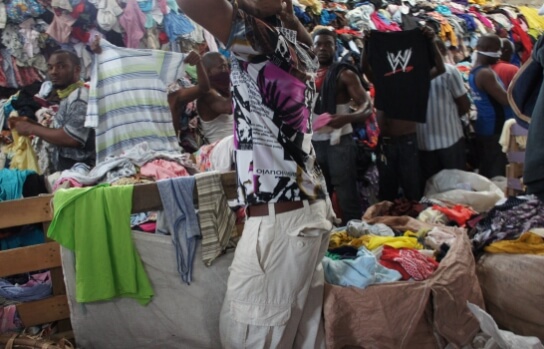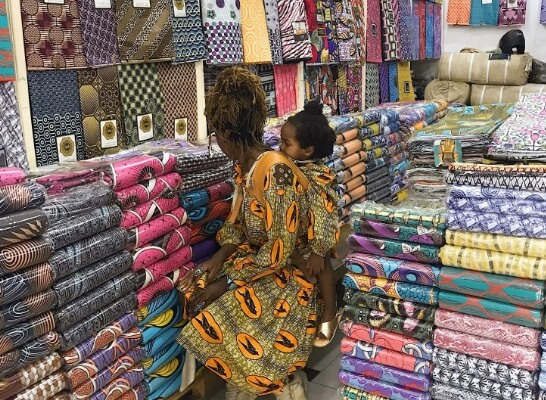As the demand for sustainable fashion continues to rise, Benin used clothes have emerged as a key player in the global secondhand market. Importers and retailers who recognize the value of these garments can not only offer unique pieces to their customers but also contribute to a more sustainable future. In this article, we will explore the top reasons why investing in Benin used clothes is a smart move.

Table of Contents
1. Introduction
The global fashion industry is undergoing a significant transformation as consumers prioritize sustainability. Among the most promising opportunities is the market for Benin used clothes. As shoppers increasingly seek eco-friendly alternatives, the appeal of secondhand clothing from Benin has never been stronger. This article will explore five compelling reasons why investing in Benin used clothes is not only a fashion-forward decision but also a responsible one.

Overview of the Sustainable Fashion Movement
The sustainable fashion movement has gained momentum, urging brands and consumers alike to reconsider their purchasing habits. Benin used clothes play a crucial role in this shift, offering a viable alternative to fast fashion. By choosing secondhand items, consumers can support a more ethical approach to fashion that prioritizes environmental and social responsibility.
The Role of Benin Used Clothes
Benin used clothes are not just garments; they represent a lifestyle choice that aligns with a growing commitment to sustainability. By investing in these pieces, buyers contribute to a circular economy that minimizes waste and promotes resourcefulness. This focus on sustainability is a significant draw for both consumers and investors in the fashion industry.
2. Reason 1: Unique Styles and Cultural Significance
One of the standout features of Benin secondhand clothes is their unique styles that reflect the rich cultural heritage of the region. These garments offer a blend of traditional designs and contemporary fashion, making them highly sought after by fashion enthusiasts. By investing in Benin used clothes, buyers can offer their customers one-of-a-kind pieces that stand out in a crowded market.
The Diversity of Fashion in Benin
The fashion landscape in Benin is incredibly diverse, influenced by various cultural and artistic traditions. Each piece of clothing tells a story, showcasing the creativity and craftsmanship of local artisans. This diversity not only attracts consumers looking for something different but also positions Benin used clothes as valuable commodities in the global market.
How Culture Influences Design
The designs of Benin used clothes are deeply rooted in the country’s cultural identity. Patterns, colors, and styles often reflect local customs and celebrations, making these garments not just fashionable but also meaningful. Investors can tap into this cultural richness, appealing to consumers who appreciate the story behind their clothing choices.
3. Reason 2: Environmental Benefits of Secondhand Clothing
Investing in Benin secondhand clothes significantly contributes to environmental sustainability. The fashion industry is one of the largest polluters globally, and opting for secondhand garments helps mitigate this impact. By choosing Benin used clothes, consumers can play a part in reducing waste and promoting a more sustainable fashion ecosystem.

Reducing Waste in the Fashion Industry
The fast fashion model promotes a culture of disposability, leading to massive amounts of textile waste. Benin secondhand clothes offer a solution by extending the lifecycle of garments and reducing the demand for new production. This shift not only lessens the environmental burden but also encourages a more responsible approach to fashion consumption.
The Carbon Footprint of Benin Used Clothes
Each piece of Benin secondhand clothes carries a significantly lower carbon footprint compared to new clothing. By recycling and reusing garments, the carbon emissions associated with production, transportation, and disposal are greatly reduced. This eco-conscious choice resonates with consumers who are increasingly aware of their environmental impact.
4. Reason 3: Economic Opportunities for Importers
The market for Benin used clothes presents a wealth of economic opportunities for importers. As the demand for sustainable fashion continues to grow, those who recognize the potential of this market can capitalize on its profitability. Investing in Benin used clothes allows businesses to diversify their offerings while contributing to a responsible fashion movement.
The Growing Market for Secondhand Fashion
The global appetite for secondhand fashion is expanding, and Benin used clothes are well-positioned to meet this demand. With consumers increasingly seeking unique and sustainable options, importers can find lucrative opportunities in this niche market. This trend not only benefits businesses but also supports local economies in Benin.
Potential Profit Margins and Demand Trends
Investors in Benin used clothes can enjoy attractive profit margins as consumer preferences shift towards secondhand options. As awareness of sustainability grows, the demand for quality used clothing is expected to rise, making this a smart investment choice. Businesses that embrace this trend can gain a competitive edge in the fashion industry.
5. Reason 4: Supporting Local Communities
Investing in Benin used clothes goes beyond fashion; it has a positive impact on local communities. By sourcing these garments, importers help support local artisans and businesses, contributing to the economic development of the region. This connection to community empowerment is a powerful reason to consider investing in Benin used clothes.
Impact on Benin’s Economy
The trade in Benin secondhand clothes provides a vital source of income for many local communities. As demand for these garments increases, more opportunities arise for artisans and vendors, fostering economic growth. By choosing to invest in Benin used clothes, businesses can play a crucial role in uplifting these communities.
Empowering Artisans and Local Businesses
Sourcing Benin used clothes supports the livelihoods of local artisans and entrepreneurs. By valuing their craftsmanship and unique styles, importers can empower these individuals while promoting sustainable practices. This relationship benefits both parties, creating a win-win situation for businesses and communities alike.
6. Reason 5: Aligning with Consumer Values
Today’s consumers are increasingly conscious of their purchasing decisions, often seeking brands that align with their values. Benin used clothes resonate with this trend, appealing to those who prioritize sustainability and ethical consumption. By investing in these garments, businesses can connect with a growing demographic that values responsible fashion.

The Rise of Conscious Consumerism
Conscious consumerism is reshaping the fashion industry, driving demand for sustainable and ethical products. Benin used clothes fit seamlessly into this movement, offering shoppers a way to make thoughtful choices without sacrificing style. This alignment with consumer values presents a compelling reason for businesses to invest in this market.
How Benin Used Clothes Meet Customer Expectations
Benin used clothes not only provide unique fashion options but also fulfill the increasing demand for sustainability. By offering these garments, businesses can meet the expectations of eco-conscious consumers while differentiating themselves in a competitive market. This strategic alignment with consumer values can lead to lasting brand loyalty.
7. Conclusion
In conclusion, the investment potential of Benin used clothes is substantial, driven by unique styles, environmental benefits, and economic opportunities. By recognizing the value of these garments, investors can play a significant role in promoting sustainable fashion while benefiting from a growing market. The reasons to invest in Benin used clothes are compelling, making it a smart choice for those looking to align with the future of fashion.
